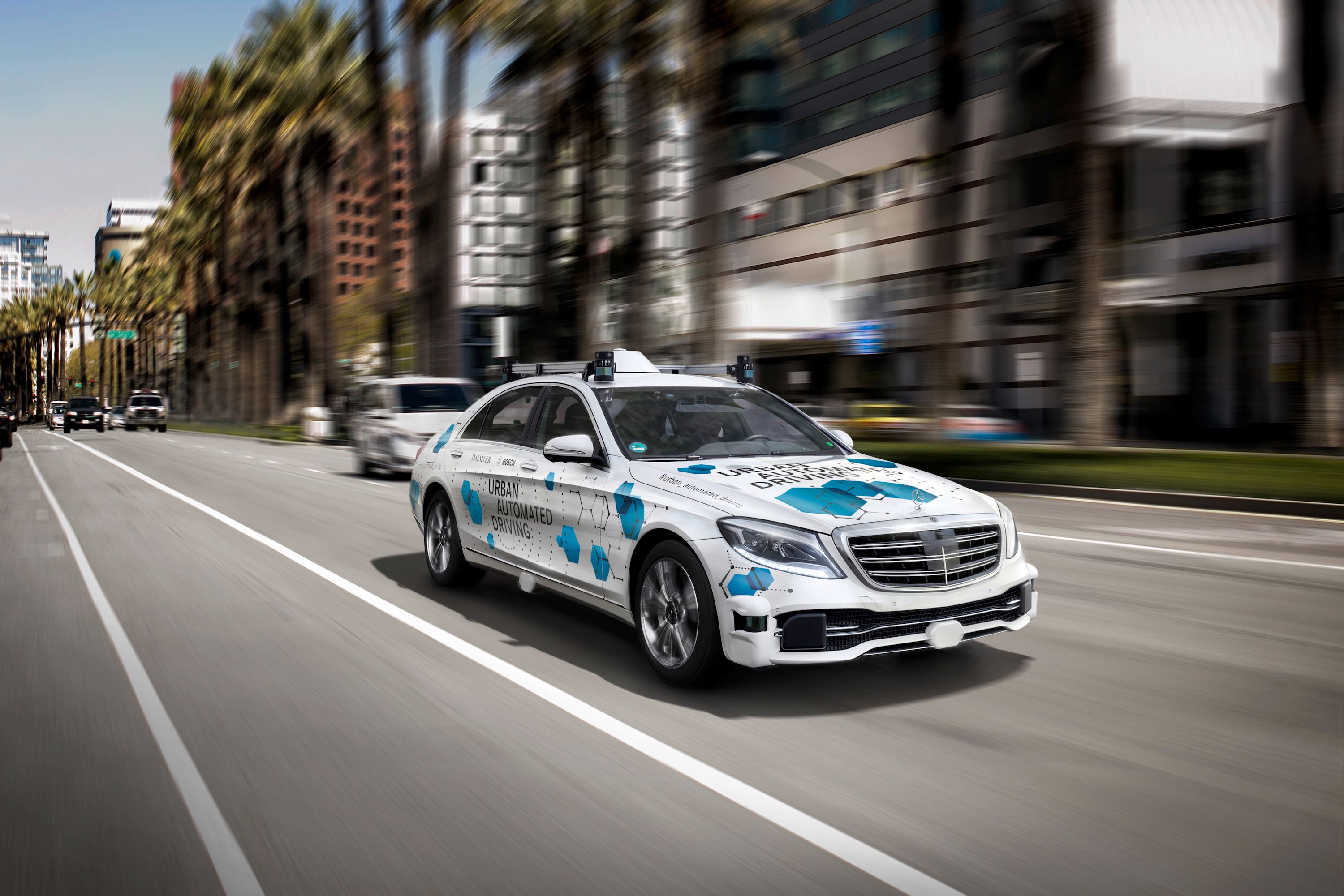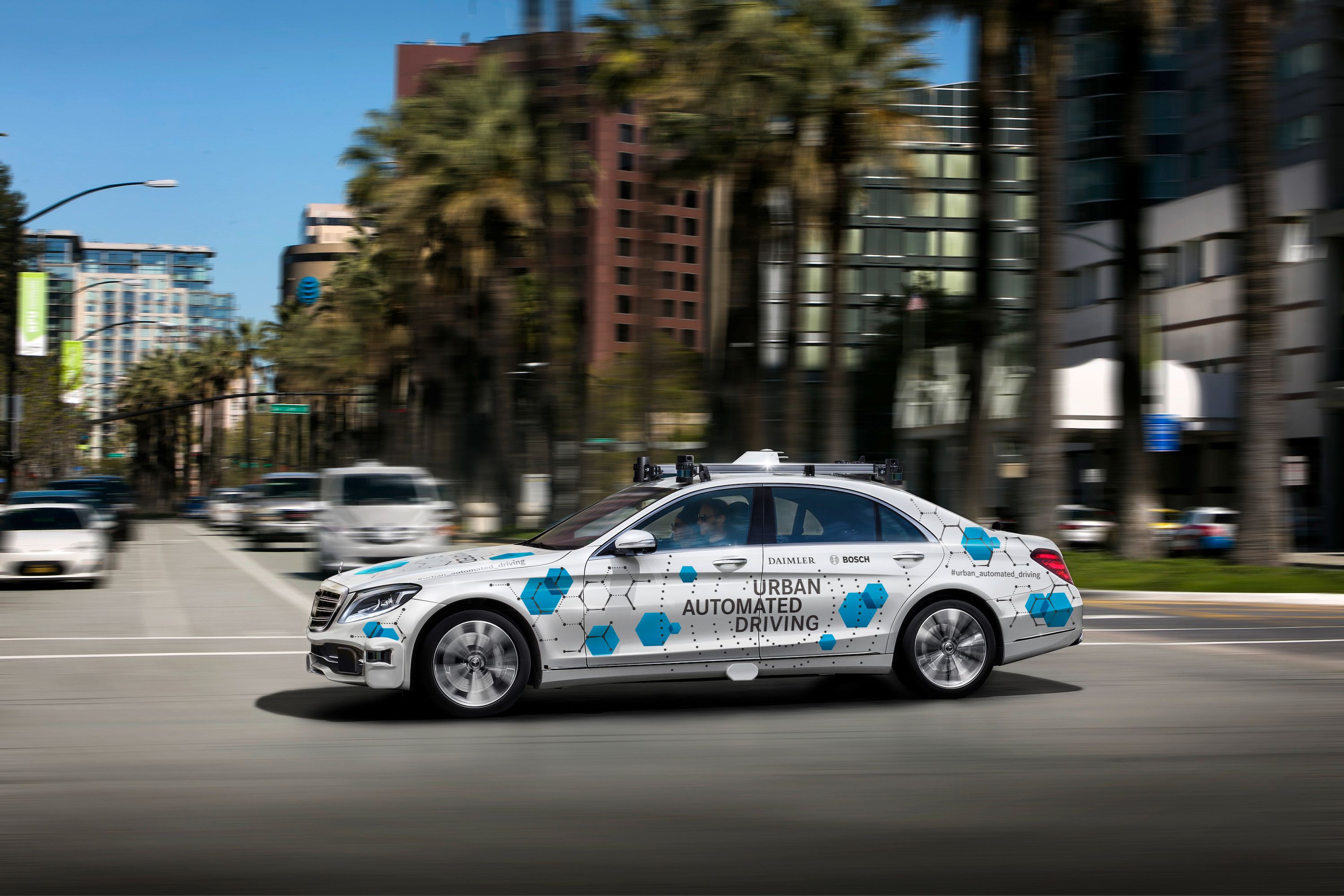Everywhere you look these days automakers scramble to put together their own autonomous vehicle program and 'lead the change.' Just recently I was reporting on Uber's desire to begin testing their autonomous Volvos again - and that's not even a car company. Now, Daimler wants to introduce its own ride-hailing service, and it will use Mercedes-Benz S-Class models as its test beds.
The two German giants plan to deploy the pilot program as early as the first half of next year. The Mercedes S-Class models, which will be equipped with Level 4 or Level 5 automation, will be deployed on the streets of San Jose, California. Daimler Mobility Services is currently working on an app for your mobile phone which will allow you to summon a self-driving S-Class so you too can experience the joys of being driven around without having to put up with a driver asking you annoyingly personal questions.
Keep reading to learn more about Daimler and Bosch's concerted efforts to bring Mercedes-branded automation to the streets of California
Who doesn't want to hitch a ride in an S-Class that drives itself?
Daimler and Benz announced their desire to launch a joint project that's aimed at developing a brand-new automated ride-hailing service back in 2017. However, the two companies hushed over most of the details and only now do we get to hear more about it. Basically, "Bosch and Daimler propose to offer the service to a selected user community in the San Carlos/Stevens Creek corridor between downtown and west San José." Already, Daimler and Bosch have signed a deal with the San Jose municipality allowing them to run this pilot program next year.
"The pilot project is an opportunity to explore how autonomous vehicles can help us better meet future transportation needs," said Sam Liccardo, mayor of San José, quoted in a joint Daimler/Bosch press release. Dr. Michael Hafner, Vice President of Drive Technologies and Automated Driving at Daimler AG noted that "for many years we consequently push autonomous driving. With this pilot, we will generate valuable insights to connect fully automated vehicles in the best way with users of future mobility services." Also, in the same statement, Dr. Stephan Hönle, senior vice president of the Automated Driving business unit at Bosch, underlined that "automated driving will help us complete the picture of future urban traffic."
There is also hope that tasting the ride-hailing experience will push customers to potentially use their own cars less which would mean less congestion in the inner city areas and increased safety. Beyond Daimler and Bosch's joint efforts, the two companies have been developing and testing autonomous vehicle solutions and technology for almost half a decade already with Mercedes being awarded a testing permit in the state of California back in 2014.
Daimler and Bosch aren't the only ones vying to put autonomous cars through their paces out on the open roads. Actually, the market of autonomous car-sharing services - and autonomous vehicles in general - gets more and more crowded by the minute.
For instance, General Motors plans to release an autonomous car next year that will lack a steering wheel and pedals. “It’s a pretty exciting moment in the history of the path to wide-scale deployment and having the first production car with no driver controls," said Dan Ammann, GM President, in an article in an article by The Verge. GM hopes that these new Chevy Bolts will take the world by storm as Ford only plans to launch their own driverless cars by 2021.
Also, GM says that they don't plan to be exempted from the NHTSA's regulations in the process, rather hoping the association will understand that a driverless car doesn't need to comply to the same requirements as one with a steering rack, pedals and all the other appendages used by a human driver.
Waymo is another company that is hard at work preparing to launch their fleet of automated trucks. The company, the self-driving arm of Google owner Alphabet, already submitted their safety report - as did Uber and Nvidia.
It's obvious that safety is of the utmost importance in the business of automated vehicles. Especially since the accident back in March when an Uber-operated self-driving Volvo XC90 SUV struck and killed a woman who was crossing the road beyond the lines of a crosswalk. The incident effectively halted Uber's self-driving test program in Arizona, where the incident happened, and the company now hopes to resume testing in Pittsburgh, Pennsylvania, close to their headquarters. However, winning public trust will be hard for all the players in this ever-growing niche and it is paramount if we are to live in a world of automated cars in the near future.
Further reading
Read our full review on the 2018 Mercedes-Benz S-Class.


